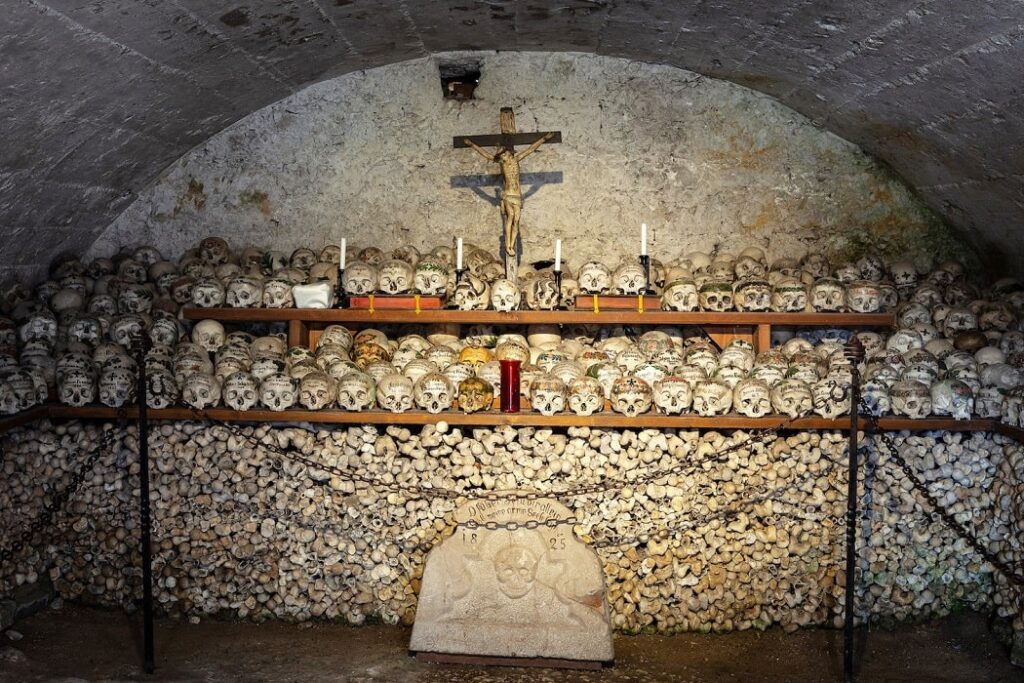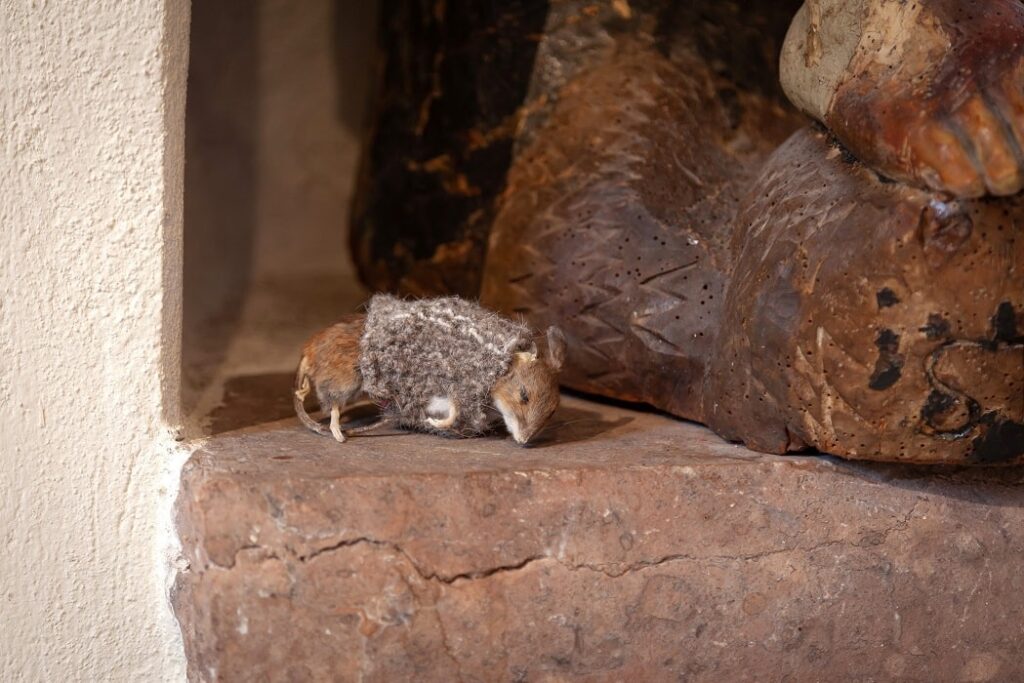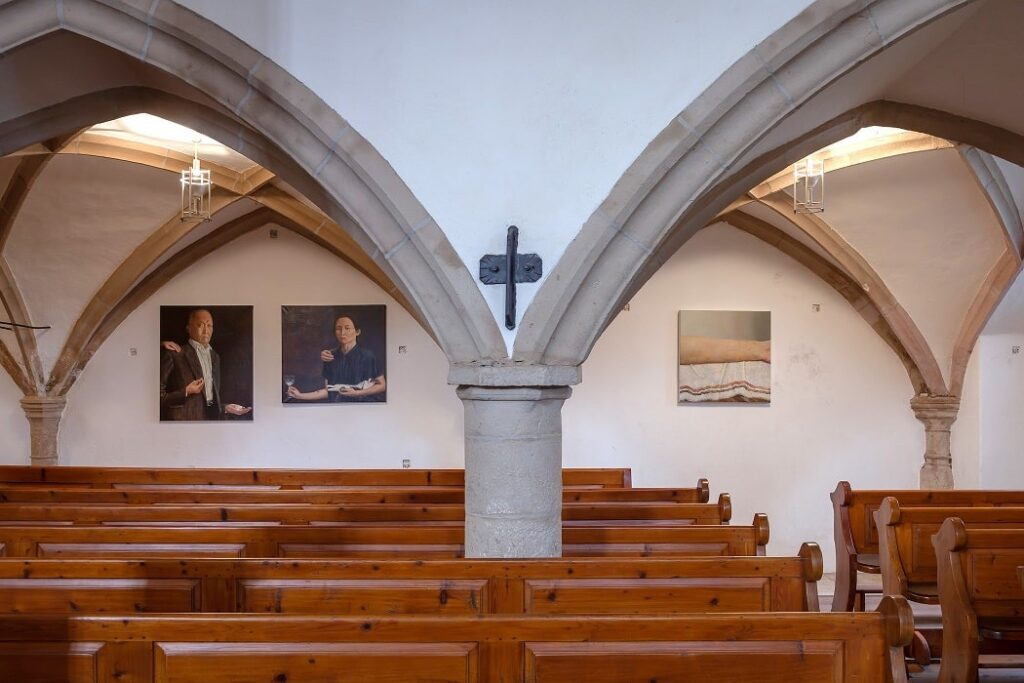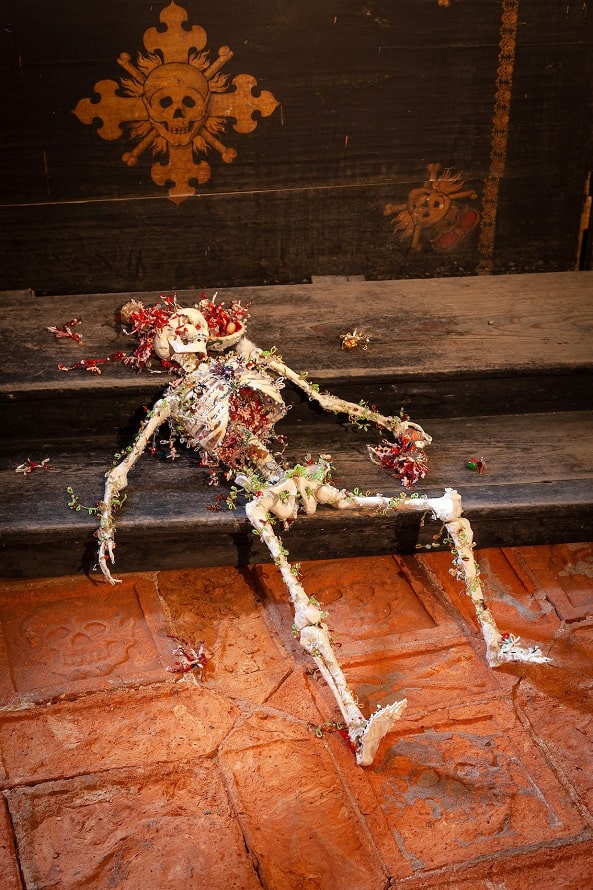The recently opened exhibition “Across the Threshold” by Japanese artist Haruko Maeda (*1983 Tokyo, Japan) shows her artistic position on the themes of death and transience in the Austrian parish church of Hallstatt, as well as in its charnel house and crypt chapel, until 28 March 2024. Maeda initiates the subject of “Memento Mori – Remembering Death” in a special place. The Hallstatt charnel house contains around 1200 skulls of deceased people from the cemetery in Hallstatt. Around 700 skulls are painted.
Image above: Haruko Maeda, Über die Schwelle, © Ulrich Kehrer
Death is omnipresent in Hallstatt. It is part of the life cycle of the inhabitants and at the same time a centre of attraction for tourists from all over the world. There is hardly any other place where this ultimate truth of life finds a drastic equivalent in the ossuary. The skulls and bones, some of which are skilfully painted with symbols of life and neatly stacked, have been a perpetual memento mori for around 400 years. The deceased usually remained in the grave for 10-20 years until the skull was removed from the earth, cleaned by the gravedigger and then placed outside to bleach in the sun and moon. The skull was painted as the painter saw fit, but different types of painting can be seen in different periods. Today, only a few skulls are buried in the ossuary, but this is still possible on special request.

With the art project “Across the Threshold – Artistic Positions on Death and Transience”, the parish has invited artists to present their works in 2024 and pose questions about death and transience, the before and after, from a contemporary perspective. From Ash Wednesday, when the Catholic Church commemorates its own mortality, until Good Friday, works by Haruko Maeda will be on display in the church, the charnel house and the crypt chapel.

The artist, who grew up in Tokyo, now lives in Vienna after studying painting at the University of Art and Design Linz. Based on her fascination with the way death and bones are dealt with in Christian culture, their display and veneration, her works deal with the way death is dealt with in her own environment, her family and the Japanese culture that has shaped her.

In her art, Haruko Maeda combines the Shintō traditions of her home country with Western concepts. She approaches the theme of transience through religious iconography and symbols from various cultures and refers to Renaissance and Baroque works in terms of content and form. In doing so, she addresses universal questions about life and death and skilfully plays with subtle humour in her explorations.
WHEN?
Sunday, 18. Februar – Thursday, 28. März 2024
open from 9 am to 5 pm
WHERE?
Pfarrkirche Hallstatt
Kirchenweg 40
4830 Hallstatt
Austria






